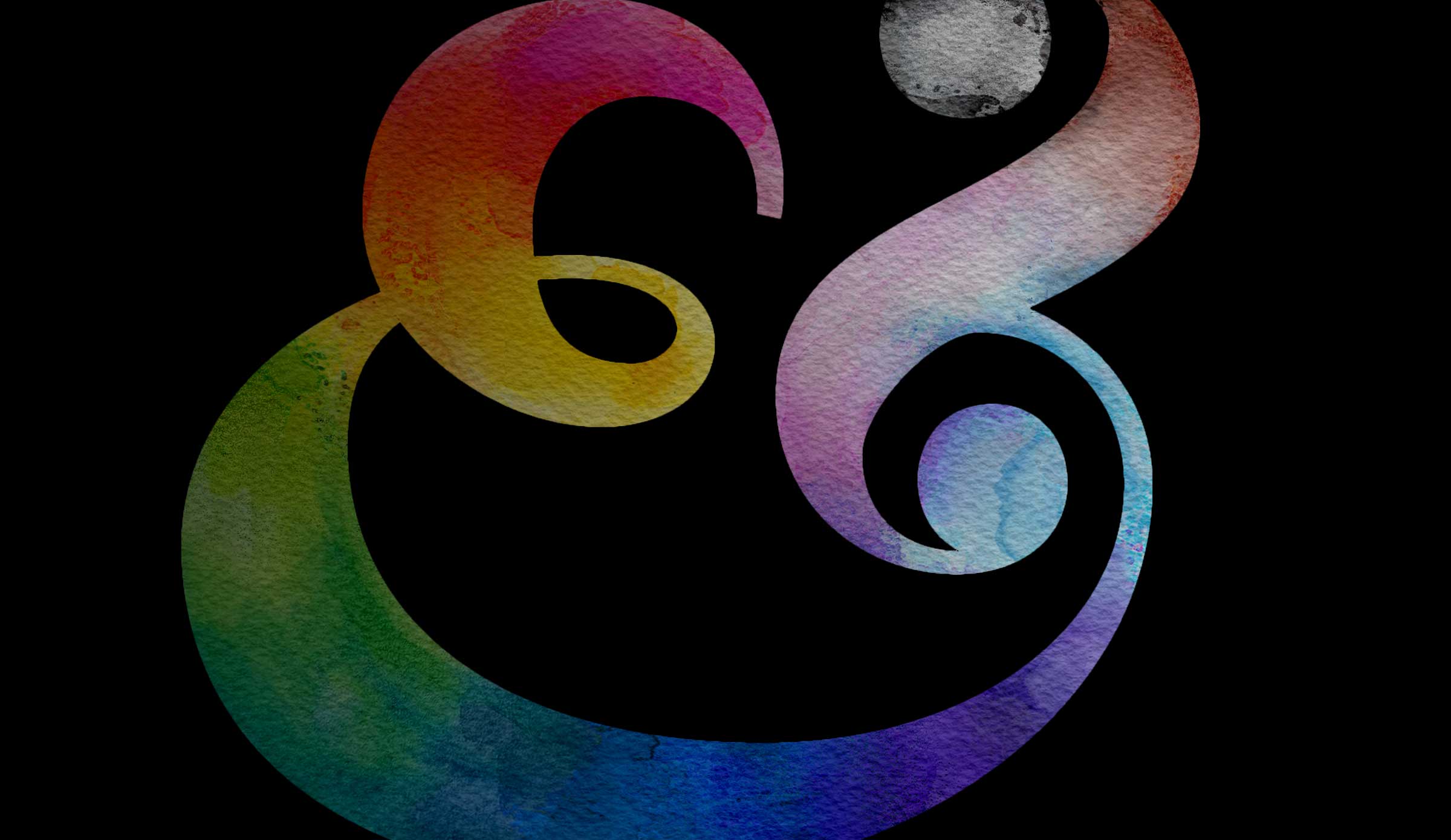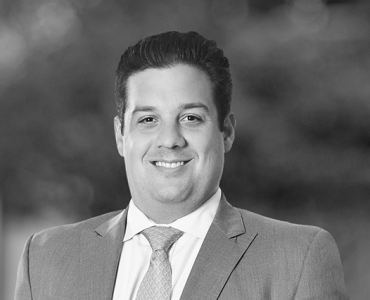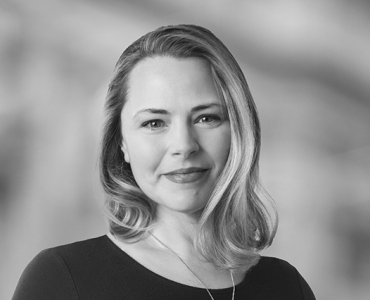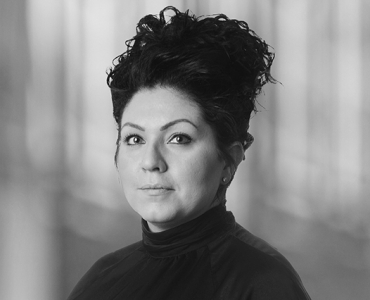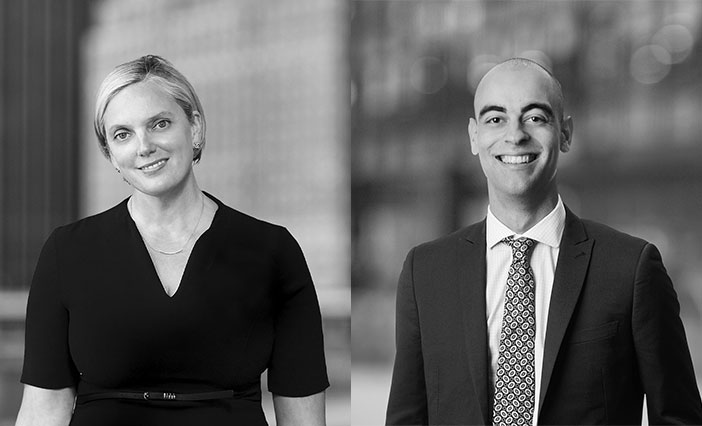
June 2022: Melissa Butler is a partner in the Capital Markets Practice in London and has recently become the new partner sponsor of Spectrum, White & Case's LGBTQ+ network. We listened in on her recent conversation with Adam Melone, an associate in the Commercial Litigation Practice and Spectrum committee member.
Adam Melone: Melissa, how does it feel to be the new Spectrum partner sponsor?
Melissa Butler: Pretty cool, actually. I've had a number of different leadership positions in my career, and you always feel honoured when someone asks you to participate in something or do something. But this one felt a little more personal. People felt that I might be able to help contribute, and, you know, amplify and influence. And I feel really proud of that, if I'm honest. So I'm really, really chuffed.
AM: We're happy to have you on board! Here's a question for you: Given the progress that has been made for LGBTQ+ people since the first Pride March in the UK 50 years ago, why do you believe it is important that we still celebrate Pride?
MB: As well as being a celebrationŌĆöand anyone who's ever been to a pride parade would definitely call it a celebrationŌĆöit's also important to remember that it's a reminder and an acknowledgement of the fight for equal rights. It's not just a party. So it not only allows the LGBTQ+ community to be proud of who they are, but allows allies to support them, and support the community.
AM: So what motivated you to become an active ally for the LGBTQ+ community?
MB: You know, I thought about this word. It's not like I just woke up one day and became an ally, right? I feel like it's the kind of thing that happens over a period of time. 1998 was the first year I was in law school, that was the year that Matthew Shepard was attacked and killed in the US. I think that that kind of hit me at a time when you're starting to really think about social justice and fighting the good fight.
I've had people who are very close to me, who are members of the LGBTQ+ community, and I'm in touch with their struggles and their joys. When all these things come together, you really see you how important it is to not only stand up for equal rights, but alsoŌĆöonce you come into a position of authorityŌĆöthat you use that authority to create an inclusive environment, to create an environment where people feel that they belong, and that they can bring their whole selves to work.
AM: I really like the way you highlighted the joys as well as the struggles, because sometimes we don't give enough attention to the joy of being part of this vibrant, very exciting, change-making community.
MB: Just seeing someone you love be with someone that they love. That's going to make anyone happy, you know? To live in a world where they wouldn't have the rights to do that, it just feels unfathomable.
AM: How would you describe the roles and responsibilities of allies, and the actions that they can take in demonstrating solidarity with LGBTQ+ people?
MB: There's lots of ways that allies can support; turning up for events like Pride, wearing the rainbow lanyards and putting on the T shirts; I think those are helpful touch points. Then there's the more substantive ways where I think an important role for an ally is being someone who can call out behavior in a way that perhaps a member of the LGBTQ+ plus community can't do themselves. I think allies should feel a responsibility to do that.
The other day, I heard the phrase, "a shared reality." And I found that really profound. I come to the office, and I find it to be an inclusive place; I find it to be a place where I learn, a place where I'm challenged, a place where I have friends. If someone else comes to the office and doesn't have that same experience, then something's gone wrong. I think that it's important for allies be cognizant of that and help build a shared sense of reality.
AM: I wanted to dive into the historic tension between corporations and Pride. The former is often accused of adorning their logo in rainbow colours for the month of June, while not meaningfully combating, or even in some cases, perpetuating homophobia or transphobia year-round, in the workplace and beyond. What do you think firms like White & Case and others can do to tackle it?
MB: I think that is a fair concern and I wish I knew what the answer was to it. All I can say is I think we as a law firm have a unique role in that respect, right, where the profession of law is one of justice. It's one of fairness. We need to move beyond Pride and acknowledge that there's things you can do, year-round, to create an inclusive environment.
AM: So who is your favourite LGBTQ+ icon? And why?
MB: I'm going to say Alan Turing. You know, he was 42 when he died. Think of how much more he could have given the world.
AM: That's a great example, but I'd also say that it's important that people, no matter what their contribution, should just be allowed to live their lives.
MB: Right. But I think in his case, if we're talking icons, the whole world lost something.
AM: Agreed. I wanted to ask you how you usually celebrate Pride Month and whether there are any celebrations of previous years that stick out in your mind as particularly memorable?
MB: I do try to go to the paradeŌĆöand bring my family tooŌĆöand I've always enjoyed that. And of course there are always plenty of events and celebrations in the office too, which I make a point of attending.
AM: I love that you bring your children along to the Pride celebrations.
MB: Definitely. It's important to let them know that this is something to celebrate, and to show that there are lots of different types of families, that same-sex relationships are totally normal. Plus, it's a great day out!


